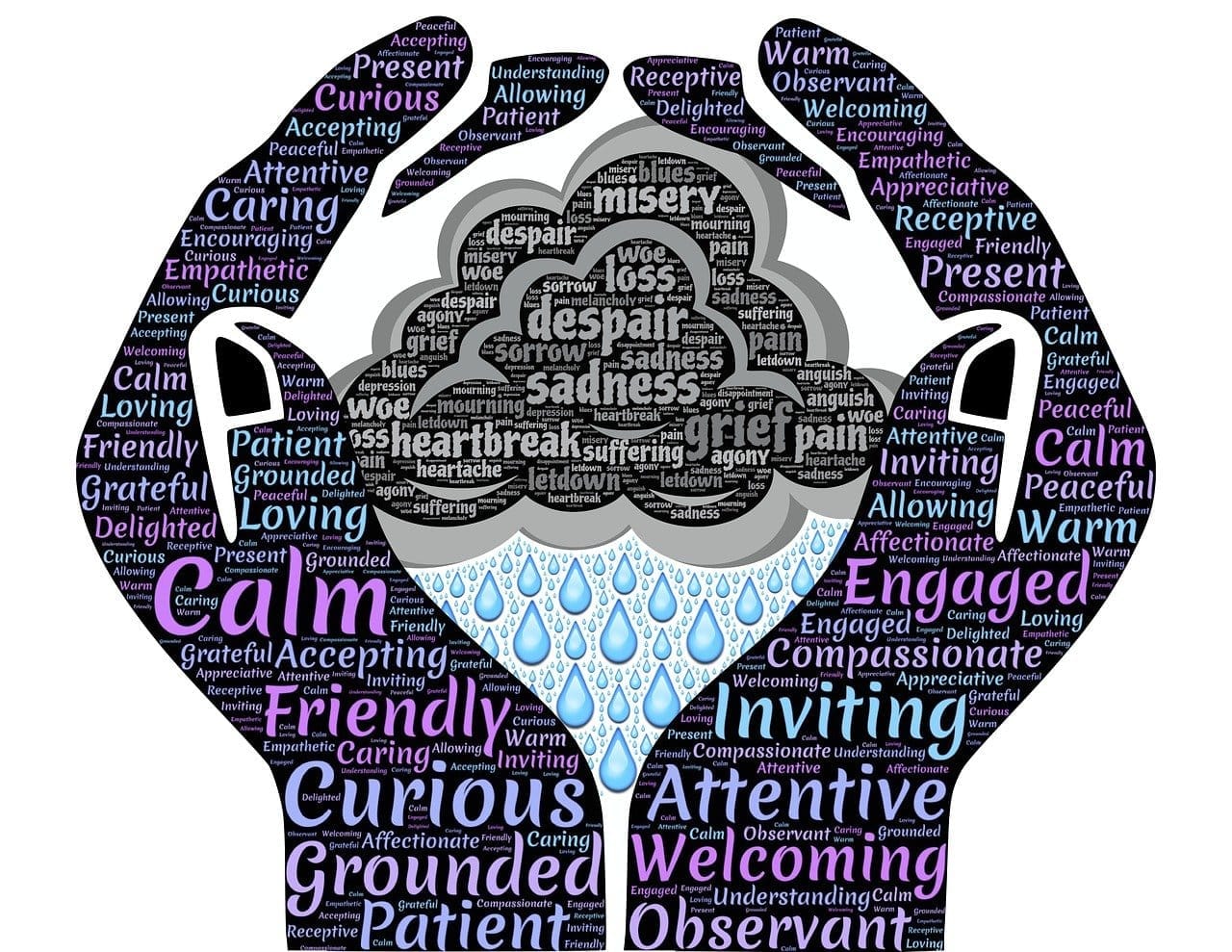Practice Self-Compassion: Have you ever wondered how you could be kinder to yourself and the profound impact this could have on your mental health? Many people go through life treating others with compassion but often struggle to extend the same kindness inward. Engaging in self-compassion is not merely a trend; it’s a worthwhile practice that can dramatically enhance mental well-being. Today, let’s uncover the transformative journey of practicing self-compassion and the positive ripple effects it brings to your mental health.

Table of Contents
Understanding Self-Compassion: The Foundation for Better Mental Health
Self-compassion involves treating yourself with the same understanding, patience, and kindness that you might offer to a friend facing difficulties. It serves as a cornerstone for mental resilience, offering a buffer against various stressors that life inevitably presents. When you practice self-compassion, you’re choosing to stop harsh self-criticism and instead embrace a nurturing approach to yourself.
What Self-Compassion Is and Isn’t
To truly understand self-compassion, it is crucial to distinguish it from self-pity or self-indulgence. Self-compassion is not wallowing in your own problems or being overly lenient with yourself at the expense of personal growth. Instead, it’s an active state of caring for oneself, encouraging healthy emotions, and taking steps towards positive change. It acknowledges that mistakes and failures are part of the shared human experience.
The Distinction from Self-Esteem
It’s easy to confuse self-compassion with self-esteem. However, self-esteem depends on evaluating oneself against external benchmarks, which can lead to an unstable sense of worth. Self-compassion, on the other hand, provides an intrinsic sense of security and resilience by nurturing a positive and realistic self-view, regardless of external circumstances or achievements.
The Profound Effects of Self-Compassion on Mental Health
Understanding the benefits of self-compassion is essential to appreciate its influence on your mental health. Numerous studies reveal its role in reducing anxiety, depression, and stress while enhancing emotional well-being and resilience.
Reducing Anxiety and Depression
Practicing self-compassion helps reduce symptoms of anxiety and depression by fostering a balanced view of your circumstances, rather than exaggerating negative aspects. It promotes a mindset where mistakes are opportunities for learning rather than proof of inadequacy.
Enhancing Emotional Resilience
Self-compassion nurtures emotional resilience, equipping you to face life’s challenges with strength and stability. By accepting imperfections and failures without harsh judgment, you build the capacity to recover from setbacks more swiftly and effectively.
Building Positive Habits for Mental Well-Being
Incorporating self-compassion into daily life encourages the development of positive habits and routines essential for sustaining mental health. This includes adopting healthier lifestyles, practicing mindfulness, and nurturing supportive social connections.

Cultivating Self-Compassion: Practical Strategies
Transforming self-compassion from a theoretical concept to a personal practice requires a commitment to developing new habits and mindsets. Fortunately, several practical strategies can aid in this transformation, making it attainable and sustainable.
Self-Compassionate Mindfulness
Mindfulness forms a critical element of self-compassion. By observing your thoughts and emotions without judgment, you can foster a more balanced and objective view of your experiences. Simple practices like mindful breathing or setting aside a few minutes a day for reflection can build your self-compassionate mindfulness muscle.
Reframing Self-Talk
The power of language is immense, particularly the language you use with yourself. Take note of the way you speak to yourself, especially during challenging times. Slowly, replace self-critical inner dialogues with words of understanding and kindness. Phrases like “It’s okay to make mistakes,” or “I am doing the best I can,” can shift your perspective profoundly.
Self-Compassion Breaks
Amidst a busy day, moments of self-compassion can provide respite. Taking a few minutes to remind yourself that everyone struggles and that it’s okay to be imperfect can alleviate immediate stress and help reset your mindset.
Exploring Self-Compassion in Different Life Domains
Integrating self-compassion across diverse areas of life enhances overall mental health. It’s essential to apply self-compassion holistically, from professional endeavors to personal development and social relationships.
In Professional Life
Understanding self-compassion within your career can lead to improved job satisfaction and productivity. Whether it’s handling criticism, navigating the learning curve of a new role, or considering career transitions, being kind to oneself can prevent burnout and enhance performance.
In Relationships
Acknowledging that both you and others around you are inherently imperfect embeds compassion within your relationships. It lessens blame and resentment, promoting understanding and forgiveness. Also, teaching and modeling self-compassion for loved ones can have an enriching collective impact.
In Personal Growth
Self-compassion promotes a growth mindset, encouraging continuous learning and self-improvement. It allows you to take risks, embrace failures as learning opportunities, and pursue personal interests and ambitions without the fear of judgment or failure.

Overcoming Barriers to Self-Compassion
While engaging in self-compassion holds promise for better mental health, several internal and external barriers may arise. Overcoming these can open the path to sustained self-compassionate living.
Internal Challenges
Overcoming deep-seated patterns of self-criticism or guilt can be challenging. Recognize these tendencies without judgment and seek support if necessary. Engaging with a therapist or joining support groups that advocate for self-compassion can provide valuable insights and encouragement.
External Perceptions
Culturally, self-compassion can be misunderstood as self-centeredness or a lack of ambition. It is crucial to educate yourself and others about the true nature of self-compassion and how it supports rather than detracts from growth and achievement.
Sustaining a Self-Compassionate Lifestyle
The journey of practicing self-compassion is ongoing and evolves with time. Establishing a consistent approach ensures its benefits permeate throughout your life and mental health journey.
Building a Self-Compassionate Environment
Surround yourself with supportive people who encourage your self-compassionate endeavors. Participate in communities that share similar values and practices. Creating this environment helps sustain your commitment to self-compassion over the long term.
Continuous Learning and Adaptation
Stay informed about new approaches and resources for self-compassion through workshops, books, and online courses. Continuing to engage with new ideas and adaptations keeps the practice vibrant and aligned with your evolving life circumstances and mental health needs.

Conclusion
In conclusion, embracing self-compassion holds transformative potential for better mental health. By understanding and implementing sustained practices of self-kindness, mindfulness, and reframed self-talk, you can unlock a more resilient and fulfilling life. Implementing self-compassion across professional realms, interpersonal relationships, and personal development fosters an enriching and sustainable lifestyle. Acknowledging and overcoming barriers further solidifies your journey toward mental well-being. Ultimately, self-compassion is not just a practice but a way of being that supports you through life’s inevitable challenges with empathy and strength. As you continue this journey, share your experiences, seek supportive communities, and inspire others to explore the profound power of self-compassion in cultivating lasting mental health.
How to *actually* practice self-compassion? Try these 5 exercises
How to Use Exercise to Relieve Mental Stress Effectively

